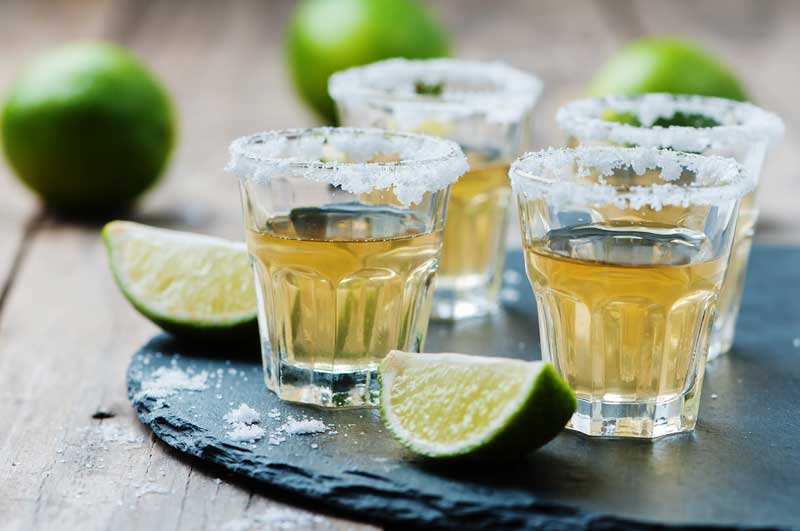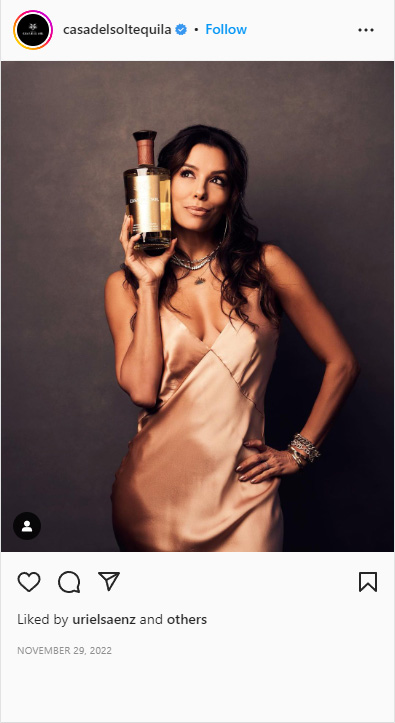Tequila has been around for centuries, but only in recent years has it become a popular choice amongst consumers. According to the Distilled Spirits Council of the U.S., tequila and mezcal are the second-fastest growing spirits category, with tequila exports reaching a record $3.6 billion between January and October of last year. This is an increase of 34.1% over the same period in 2021, according to data from The Ministry of Economy and the Agricultural Markets Consulting Group.
The growth in popularity of tequila can be attributed to a number of factors, including the expansion of the premium spirits market, the introduction of new flavors, and a greater social media presence. With sales still growing and showing no signs of slowing down, it’s crucial that suppliers and distributors alike keep an eye on current trends to determine which direction the market is heading.
Premiumization
Tequila premiumization refers to the trend of consumers moving towards higher-quality, premium products. This trend is driven by a growing appreciation for the rich history, cultural heritage, and unique flavors of tequila, as well as a greater understanding of the craftsmanship and attention to detail that goes into producing it.
This trend has resulted in the creation of a wide range of premium brands that offer more refined products including sipping tequilas, high-end blends, and premium small-batch tequilas. These premium lines are typically made with 100% blue agave, the highest quality agave plant, and are produced using traditional methods, such as using a tahona to crush the agave.
This trend has also largely been driven by a change in tequila’s reputation as a party drink, with consumers developing an appreciation for its complex and distinct flavor profile. As a result, premium tequila has become a popular choice for special occasions, such as weddings and celebrations, and has become increasingly popular as a gift item. The rise of craft cocktails has also led to an increased demand for premium brands, as consumers look for unique flavors that can bring their drinks to the next level.

Sustainable practices
With the increasing awareness brought to climate change, distilleries are feeling more and more pressure from their consumers to reduce their carbon emissions. In an effort to meet these demands, tequila distilleries have begun investing heavily in renewable energy sources and implementing energy-efficient technologies in their production facilities. Casa Sauza, the distillery behind Sauza Tequila and Hornitos Tequila, has been recognized by the Tequila Regulatory Council and Mexico’s National Quality Award for having one of the lowest carbon footprints of any tequila brand.
Ethical business practices don’t just make for attractive marketing either—sustainability is crucial for the long-term health of the industry. This includes using sustainable farming methods in agave production, such as crop rotation and natural fertilization, to maintain the health of the soil and protect against disease and pests.
Agave farming also requires a significant amount of water in traditionally dry climates, forcing many producers to implement water conservation practices to reduce their water usage and minimize their impact on local water resources.
Many tequila brands also recognize the importance of working closely with local communities and supporting local economic development. This can include creating jobs, supporting local businesses, and investing in community initiatives.
New flavors
Fruit-flavored tequilas, such as lemon, lime, and grapefruit, are becoming increasingly popular within the tequila market. These tequilas are designed to be sweeter and more approachable than traditional options, making them ideal for new customers who may have been previously intimidated by tequila’s bold reputation.
For the veteran tequila sippers, pepper infusions, such as jalapeños and ghost peppers, are also growing in popularity. These tequilas appeal to consumers who enjoy a bolder flavor or wish to celebrate tequila’s cultural background as a Mexican spirit.
Some tequila brands are also experimenting with more unconventional ingredients, such as rose, elderflower, and cucumber. These unorthodox flavors makes them ideal candidates for craft cocktails as well as presenting new options for consumers who have grown weary of traditional brands.

Rise of mezcal
Mezcal, like tequila, is a spirit made from the agave plant. However, unlike tequila which is made exclusively from blue agave, mezcal is made from a variety of agave plants and is produced using traditional methods that result in a smokier flavor profile.
The rise of mezcal can be attributed, in part, to its rapidly increasing awareness within consumer channels. With more and more media coverage, as well as the growing popularity of mezcal bars and events, mezcal is quickly growing as an appealing alternative to more mainstream spirits.
Mezcal is often made using traditional methods and is produced in small batches by family-owned distilleries. This artisanal approach appeals to consumers who are looking for authentic, handcrafted products with a rich cultural heritage.
Mezcal has also become a popular ingredient in cocktails, particularly in the United States and Europe, where bartenders are using it to create unique and innovative drinks. The popularity of mezcal cocktails has helped to drive interest in mezcal and has introduced this spirit to a wider audience.
Social media
With millennial and Gen Z drinkers replacing prior generations, spirits brands have had to adapt their marketing tactics to reflect their changing demographic. With this in mind, social media has begun to play a huge role in how brands reach younger consumers.
Tequila’s cultural ties to Mexico and inherent reputation as a bolder spirit has made it an appealing beverage for consumers looking to share their more exotic palate on social media. Additionally, the rise of influencer marketing has fueled online discussions amidst endorsements and promotions from people’s favorite celebrities, such as Dwayne “The Rock” Johnson and Nick Jonas.
The use of social media also allows for the exposure of brands with more diverse leadership such as Casa del Sol, a women-headed company launched by Mexican-American actress Eva Longoria. Brands featuring diverse leadership not only elevate the voices of their community, but also help in establishing trust and garnering support from underserved audiences. Now, with social media, these brands have a platform that allows them to spread awareness and reach the consumers they represent.
Social media has allowed the tequila industry to engage with customers and build relationships with them. Brands can use social media to connect with consumers, provide information about their products, and respond to customer inquiries and feedback. Brands can also use social media data to understand consumer preferences, track changes in consumer behavior, and identify new trends in the market.
Learn more
Tequila is a hot category, and if things continue to unfold the way the way they have been recently, tequila producers and distributors have a promising future. Interested in learning more about what’s hot in the beverage industry? Check out our white paper—”5 Trends Impacting the Wine & Spirits Industry in 2023.”
- How Spirits Brands Can Improve Brand Loyalty with Data Analytics - January 30, 2024
- The Collapse of Herbl, and How Other Cannabis Distributors Can Avoid the Same Fate - January 24, 2024
- Top 5 Blog Posts of 2023 - December 28, 2023





